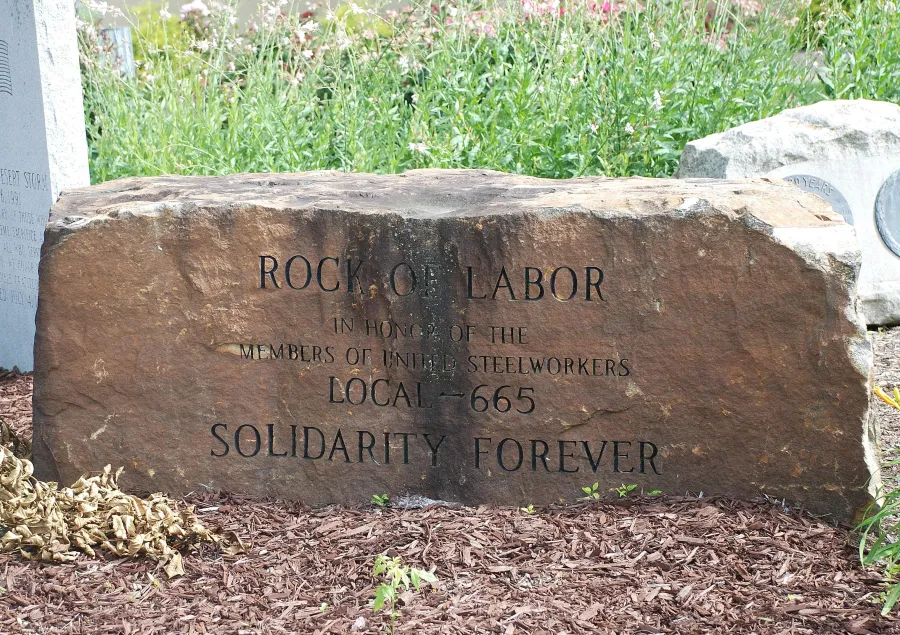'Don't hide your light under a bushel'

This is the second in a two-part series on union-media relations.
By BERRY CRAIG
AFT Local 1360
How can you help your union get better coverage in small-town media?
First, try getting to know the newspaper, TV and radio reporters. Introduce yourself by calling them up or sending them an email with your photo. It’s a good idea to put a face with an email. Better yet, drop by for a visit.
The anti-union newspaper publisher or station owner may think we have horns. But reporters cover the stories. Show them we don’t.
Let them know we do what they do: work for a boss. Let them know we want what they want—a good living for ourselves and for our families.
Our kids go to school with their kids. They play on the same ball team or march in the high school band together. In other words, there’s common ground—so find it.
Second, make news yourself. When your union local elects new officers, tell the media. Send an email and follow it up with a friendly “Just checking to make sure you got my email,” phone call. A union election probably won’t make the front page. But chances are, it will get printed somewhere in the paper and might get a mention on the TV or radio news.
Small town papers are always hungry for local news and photos. So send a photo of your smiling new president and executive board, too. Emailed photos work best. But make sure the image is of high enough resolution to look good in the paper. If you aren’t sure, ask the folks at the newspaper what resolution they need.
Unions can be make good news in other ways. For example, in Paducah, building trades union volunteers pitched in to help restore an old minor league baseball park that’s now a registered historical landmark. That project made the news.
When the city decided to decorate its Ohio River floodwall with scenes of local history, the Paducah-based Western Kentucky AFL-CIO Area Council raised money to pay for a union mural. The artwork depicts the city's annual Labor Day parade. Faces of local union activists are recognizable among the marchers. The mural made the news, too.
In Mayfield, USW Local 655 retired persuaded the Graves County Fiscal Court to put a large stone “Rock of Labor” on the courthouse law in memory of the union which disappeared when Continental Tire shut down its big plant near town. “SOLIDARITY FOREVER USW LOCAL 665” is inscribed on the memorial.
Unions sponsor fund-raisers and contribute thousands of dollars annually for worthy causes and charities at the local, state and national level.
Also, individual union members make great feature stories. Don’t be hesitant to tell reporters about them. For example, many union members are genuine war heroes, though like most heroes, they don’t brag on themselves. So you brag on them to the local paper or TV or radio station.
Stories about union veterans are especially timely around Memorial Day, Veterans Day, Independence Day and even Labor Day.
The late Bill Hack of Paducah, who retired as business manager of Ironworkers Local 782, won a Distinguished Flying Cross and a Purple Heart as a World War II B-17 bomber crewman who was shot down and nearly killed. He was featured in newspapers, magazines, online, on TV and in a book. Every story about him has included the name of his local union.
Union members make good copy in other ways, too. They might be multiple-gallon blood donors, for example. Blood drives get good coverage in small papers, especially. If you’re a mega-donor and a reporter asks you where you work, don’t just say where. Tell the scribe the name of your union local. No matter what the feature story is about, let the reporter know you belong to the union. Chances are good that if you bring it up, the reporter will put it in the story.
Local public access cable TV is a great place to showcase your union. I am about to restart "The Union Label" on Paducah 2 television. I hosted the show when I taught at West Kentucky Community and Technical College. My guests included local, state and national union officials and rank-and-file union members—including Bill Hack and Jeff Wiggins, our state AFL-CIO secretary-treasurer. Contact the folks who operate your local public access channel and suggest they start a show about unions.
In short, don’t hide your light under a bushel. If you’re a local union official, don’t be hesitant to pitch stories about your union to local papers and to TV and radio stations. They won’t run all of them, of course. But the more stories you pitch, the better your odds of getting something in print or on camera.
Anyway, feel free to send me your ideas about how you think unions can get better press. Tell me ways you’re telling your communities about how your unions are being good neighbors so I can share them with my union brothers and sisters.
My email address is bcraig8960@gmail.com